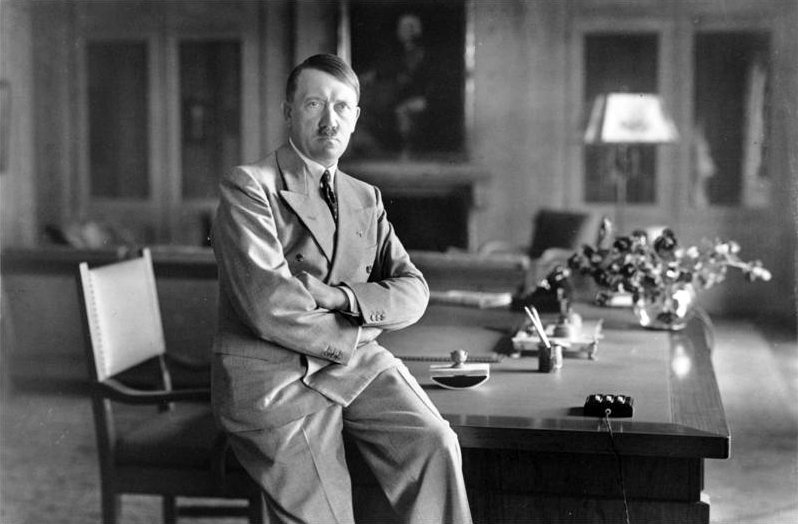At the end of WWII, a piece of Adolf Hitler’s desk was smuggled out of Germany. That piece is being auctioned off in Colchester, Essex, later this month.
The piece is 7cm long, made of marble and was originally part of Hitler’s desk in the Reich Chancellery building. The desk was shattered in the fighting as Allied troops attacked Berlin at the end of the war.
Lord Balfour and Sir Sholto Douglas, Marshal of the RAF, saw the shattered desk while the Russians were giving them a tour in November of 1945.
Lord Balfour caused a distraction and took three pieces of the desk, making each into a paperweight with a plaque. One of them was given to Winston Churchill as a gift. One was purchased by Ronald Squire, an actor, who donated the piece to a charity. That charity is now selling the piece at auction to raise funds.
Reeman Dansie is the auction house handling the sale. The initial valuation for the desk-come-paperweight is £3,500, but auctioneer Lewis Rabett confesses that it is a difficult thing to estimate. “It is a very rare and unusual lot, and it is difficult to put a price on it. If there are two collectors who want it, it’s worth as much as they think,” Rabett said. “It would not surprise me if we get more, but we have to start somewhere. Given it is for charity we hope it gets as much as possible so it can continue its good work.”
Another of Hitler’s desks from his Reich Chancellory office was taken in its entirety by the Americans at the end of WWII. This desk went on to serve as an everyday piece of furniture in a rest home for US service personal, where it stayed until 1996. During this time, it was modified with the addition of fax and telephone connections on its side. Sometime around 2000, the desk was returned to the German authorities. The German government vowed that the desk would never be sold, despite its potentially immense value.
As for the piece that is for sale, auctioneer Rabbett said it was its story that really makes it special. “Being sneaked out of the Chancellery building right under the noses of the Russian soldiers and whisked back to Britain, [it’s like something] straight out of the pages of a Cold War spy novel.”
He also said that although he had never auctioned a piece quite like this, dealing with such unique items was “the joy of the job.”
The sale is scheduled for August 25.
